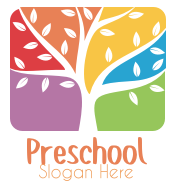Title: Survey of 21st Century Skills Among Science Students at the Secondary Level
Introduction:
In the rapidly evolving landscape of the 21st century, education systems worldwide are recognizing the need to equip students with essential skills that go beyond traditional subject knowledge. These skills, commonly referred to as 21st century skills, are considered critical for success in the modern world. This study aims to conduct a comprehensive survey of 21st century skills among science students at the secondary level.
Science education plays a pivotal role in fostering critical thinking, problem-solving, and scientific literacy among students. However, it is equally important to assess and develop 21st century skills alongside subject-specific knowledge. These skills encompass various domains, including communication, collaboration, creativity, critical thinking, digital literacy, and global citizenship. By understanding the current level of 21st century skills among science students, educators can tailor their instructional approaches to nurture these skills effectively.
The secondary level of education is a crucial stage where students are preparing for higher education and future careers. Assessing the proficiency of science students in 21st century skills at this level is essential for identifying strengths, weaknesses, and areas that require improvement. Moreover, it provides an opportunity to explore the relationship between these skills and academic performance, as well as their potential impact on students' future success.
This study will employ a survey methodology to gather data on 21st century skills among science students at the secondary level. The survey will consist of validated instruments designed to assess different dimensions of 21st century skills, such as problem-solving, creativity, collaboration, and digital literacy. Participants will be selected from a diverse range of secondary schools, ensuring a representative sample.
Quantitative data collected through the survey will be analyzed using statistical techniques to examine the prevalence and proficiency levels of 21st century skills among science students. The analysis will provide insights into the overall skill levels and specific areas that may require targeted interventions. Additionally, the study will explore potential correlations between 21st century skills and academic achievement, as well as any variations based on factors such as gender, socioeconomic background, or school type.
The findings of this study will have significant implications for science education policy, curriculum design, and instructional practices. The results can inform educators about the strengths and weaknesses of science students in 21st century skills, enabling them to design targeted interventions and incorporate skill-building activities into science classrooms. Furthermore, the study will contribute to the existing body of knowledge on the relationship between 21st century skills and academic performance, providing valuable insights for educational stakeholders.
Ultimately, the survey of 21st century skills among science students at the secondary level aims to support the holistic development of students, preparing them to thrive in the complex and rapidly changing world of the 21st century. By equipping science students with essential skills, educators can empower them to become lifelong learners, critical thinkers, and active contributors to society.

Replies